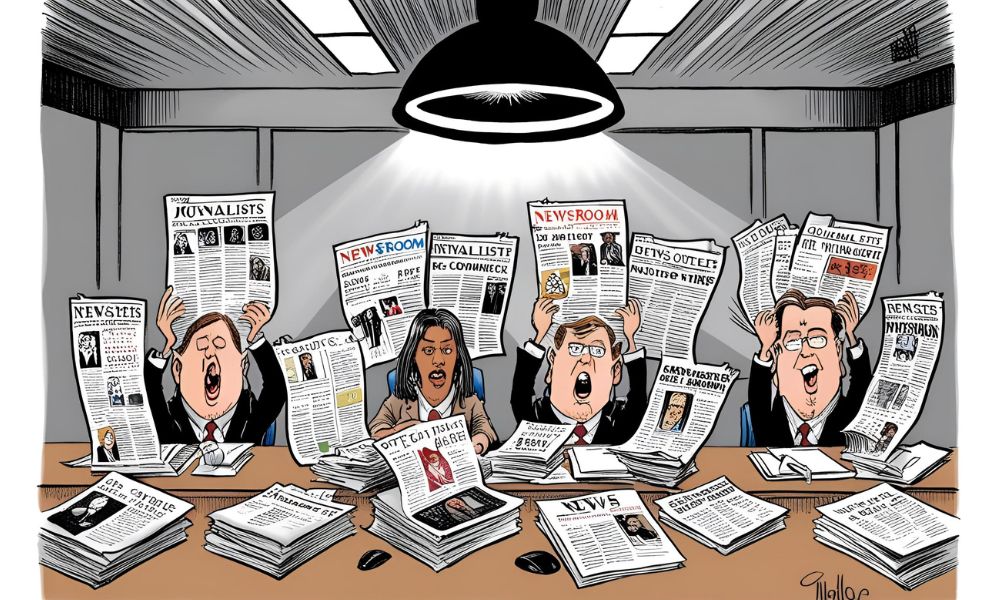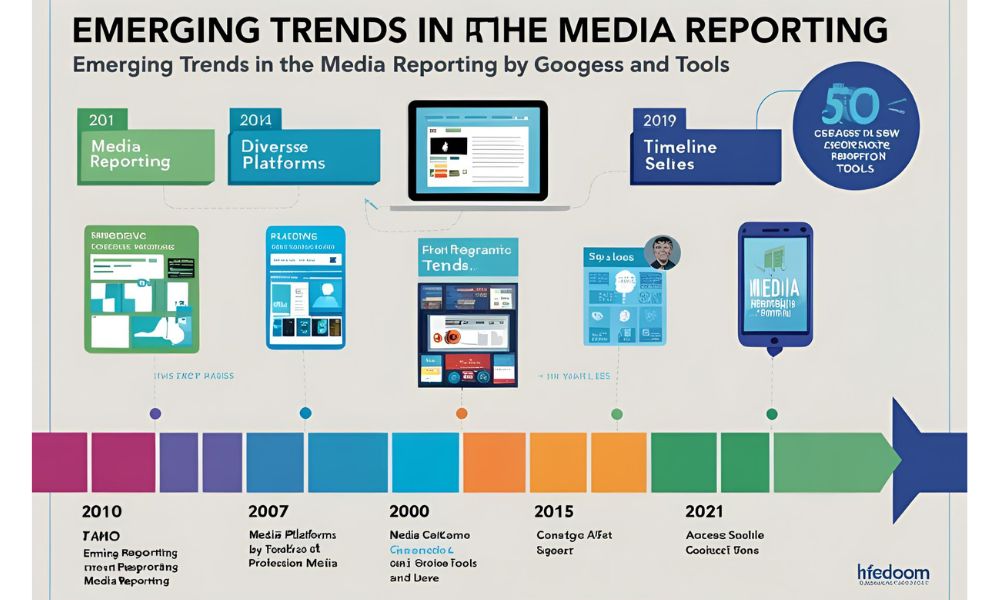When you consider Sky News, it’s hard to ignore the ongoing debate about its perceived conservative bias. With ownership under News Corp and the influence of Rupert Murdoch, many argue that its coverage skews towards right-leaning narratives, especially on critical issues like immigration and climate change. Yet, how much of this perception is rooted in individual political beliefs? As you explore the nuances of Sky News’ reporting, you’ll find questions that challenge your assumptions about media impartiality and the role of ownership in shaping news. What might these implications mean for your understanding of current events?
Overview of Sky News
What makes Sky News a prominent player in the media landscape? It’s their commitment to delivering real-time news and engaging content. You’ll find that Sky News offers a mix of breaking news, in-depth analysis, and live reporting, keeping you informed about current events in a fast-paced world. Their 24-hour news cycle ensures you’re never out of the loop, whether it’s politics, economics, or international affairs.
Sky News stands out with its innovative use of technology and digital platforms. You can access their broadcasts seamlessly through television, online streaming, and mobile apps. This flexibility means you can stay connected wherever you are.
Additionally, Sky News places a strong emphasis on investigative journalism, often uncovering stories that shape public discourse. The network has also built a reputation for its engaging presenters and correspondents, who bring diverse perspectives to the table.

Historical Background of Sky News
Sky News launched in 1989, becoming the first 24-hour news channel in the UK. You might find it interesting that it was created by Sky Television, which aimed to revolutionize news broadcasting.
Initially, the channel faced fierce competition from established networks like BBC and ITN, but it quickly carved out its niche.
In the early years, Sky News adopted a fast-paced, breaking news style, which resonated with viewers. Its unique approach to news coverage emphasized immediacy and accessibility, making it popular among the public.
By the mid-1990s, Sky News expanded its reach, investing in technology and resources to enhance its reporting capabilities.
As the years rolled on, Sky News adapted to the digital age, launching a website and mobile apps to keep pace with changing viewing habits.
You may recall significant events, such as the 9/11 attacks and the Iraq War, where Sky News provided extensive live coverage, solidifying its reputation as a reliable news source.
Editorial Policies and Guidelines
The evolution of Sky News has been shaped by its commitment to certain editorial policies and guidelines that govern its reporting.
These policies ensure accuracy, impartiality, and fairness, aiming to deliver news that reflects a range of viewpoints. When tuning in, you’ll notice that Sky News emphasizes fact-checking and verification, which helps you trust the information presented.
The guidelines also stress the importance of balancing opinions and avoiding bias in coverage. This means you’re likely to encounter diverse perspectives on hot-button issues, allowing you to form your own opinions based on a variety of insights.
Furthermore, Sky News places a strong emphasis on ethical journalism, prioritizing the public’s right to know while respecting privacy and sensitivity where needed.
Analysis of News Coverage
News coverage at Sky News often sparks debate about its perceived political leanings. When you tune in, you might notice that the selection of stories can sometimes reflect a particular viewpoint.
For example, coverage of economic issues often emphasizes government policies or decisions in a way that some viewers interpret as favoring conservative perspectives.
You may also find that the tone of the reporting plays a role in shaping public perception. Opinion segments feature commentators who may lean towards conservative ideologies, potentially influencing how news is framed.
This can lead you to question whether the overall coverage is balanced or if it skews toward a specific agenda.
Moreover, the emphasis on certain stories over others can create a narrative that resonates more with conservative audiences.
When you analyze the topics chosen for coverage, you might see patterns that align with traditional conservative values, such as national security and fiscal responsibility.
Political Affiliations and Ownership
Owned by News Corp, the media conglomerate led by Rupert Murdoch, Sky News naturally reflects some of the political affiliations associated with its parent company.
You’ll often find that Murdoch’s media outlets have a history of leaning toward conservative viewpoints. This alignment influences not just the editorial slant but also the selection of stories and how they’re presented.
Sky News’s ownership impacts its content, prioritizing narratives that resonate with a conservative audience. News Corp has a reputation for promoting free-market policies and a limited government approach, which can be observed in the coverage of economic issues and public policy debates.
You might notice that certain topics receive extensive coverage, while others are downplayed, aligning with the broader ideological leanings of the parent company.
Moreover, the involvement of prominent conservative figures in its programming can further solidify this connection.
As a viewer, you might find that this ownership structure shapes the overall tone of Sky News. While it strives to maintain journalistic integrity, its political affiliations are hard to overlook, making it essential for you to critically evaluate the news through the lens of its ownership.
Viewer Perceptions and Feedback
For many viewers, perceptions of Sky News often hinge on its perceived political bias and the influence of its ownership. You might find that some audience members believe the channel leans toward conservative viewpoints, influencing how they interpret the news being presented. This perception can shape your understanding of the stories covered and the tone used in reporting.
Feedback from viewers varies significantly. Some appreciate Sky News for its straightforward reporting and believe it provides a balance of perspectives. Others criticize it for what they see as a slant that favors conservative narratives, feeling that it lacks objectivity.
You may also notice that social media platforms often amplify these opinions, where viewers express their beliefs about the channel’s bias. In your discussions, you might hear that the choice of commentators and guests further colors perceptions. Some viewers feel that certain voices dominate the conversation, leading to an echo chamber effect.
Ultimately, your perception of Sky News will likely depend on your own political beliefs and how you interpret the news being delivered. This ongoing dialogue about bias continues to shape viewer opinions and feedback.

Comparison With Other News Outlets
When comparing Sky News with other news outlets, it’s essential to consider how each channel’s editorial stance influences its reporting style and audience perception. Sky News often adopts a more neutral tone, aiming to present facts without overt bias. In contrast, channels like Fox News and MSNBC lean toward more partisan perspectives, which can shape the narratives they promote.
You might notice that Sky News prioritizes breaking news and live reporting, focusing on delivering information quickly rather than providing extensive commentary.
On the other hand, BBC News maintains a reputation for impartiality, much like Sky, but it often delves deeper into analysis and context. While Sky News appeals to viewers seeking fast-paced updates, the BBC may attract those wanting a more comprehensive understanding of events.
Additionally, you could look at how social media plays a role. Many news outlets, including Sky, utilize platforms like Twitter and Facebook to reach audiences, yet their engagement strategies differ.
Sky News often emphasizes immediacy, while others may focus more on interactive content. Ultimately, understanding these differences can help you navigate the news landscape more effectively.
Major Controversies and Criticisms
Sky News has faced its share of controversies and criticisms, particularly regarding its perceived political bias. Critics argue that the network leans towards conservative viewpoints, which impacts its reporting and coverage. You might notice that some stories appear to emphasize right-leaning narratives while downplaying or neglecting opposing perspectives. This selective reporting fuels claims that Sky News prioritizes a specific ideological agenda.
Moreover, the network’s handling of sensitive topics, such as immigration and climate change, has sparked backlash. Viewers often express concern that Sky News promotes sensationalism rather than objective journalism. Instances of hosting controversial guests who espouse extreme views have only intensified the scrutiny.
The channel’s editorial choices can lead to accusations of misinformation, especially during election cycles, when the stakes are particularly high. You may also see public figures and media watchdogs call for greater accountability and transparency in how news is presented.
Ultimately, these controversies contribute to an ongoing debate about the integrity of Sky News and its role in shaping public opinion. As a viewer, it’s essential to remain critical and seek diverse sources to form a well-rounded understanding of the news.
Influence of Social Media
As social media continues to shape the media landscape, its influence on platforms like Sky News can’t be ignored. You see, the rise of platforms like Twitter, Facebook, and Instagram has changed how news is consumed and disseminated.
Sky News, like many outlets, has adapted by engaging with its audience online, responding to trending topics, and crafting content that resonates with users.
You might notice that the tone and style of news coverage often reflect social media trends. Headlines and stories are designed to catch your attention quickly, utilizing catchy phrases or provocative images. This shift can make traditional journalism feel more sensationalized, as news organizations compete for clicks and shares.
Moreover, social media can amplify certain narratives, which may affect how Sky News frames its stories. If a particular viewpoint gains traction online, you might find it more prominently featured in their reporting.
This dynamic creates a feedback loop where social media influences news coverage, which in turn feeds back into social media conversations. Ultimately, your news consumption experience becomes intertwined with the ever-changing landscape of social media, raising questions about objectivity and bias in reporting.
Expert Opinions and Studies
Media analysts and scholars have closely examined Sky News’ political leanings, offering varied perspectives on its potential conservative bias. Some experts argue that the channel’s editorial choices and language often reflect conservative values, particularly in its coverage of economic policies and immigration.
They point to specific instances where the framing of news stories seems to favor right-leaning viewpoints, suggesting that this could influence public perception.
On the other hand, other analysts contend that Sky News strives for impartiality, noting that it features a range of opinions across its programming.
They highlight the presence of diverse voices, including those from the left, to argue against the notion of a fixed conservative bias.
Studies conducted on media consumption patterns reveal that audiences often interpret news through their political lenses, complicating the evaluation of Sky News’ objectivity.

Future Trends in Reporting
In the coming years, the landscape of news reporting is likely to evolve significantly, driven by technological advancements and changing audience expectations.
You’ll notice a shift towards more personalized content as algorithms analyze your preferences, delivering news that aligns with your interests. This targeted approach could enhance engagement but may also create echo chambers, limiting exposure to diverse viewpoints.
Moreover, the rise of artificial intelligence will streamline news production. You might see AI-generated reports on routine events, freeing journalists to focus on in-depth investigative pieces. However, this raises questions about accuracy and the potential for biased reporting.
As social media continues to dominate, you’ll likely find news organizations emphasizing real-time updates and interactive formats. This shift may lead to more engaging storytelling methods, drawing you into the narrative in ways traditional reporting hasn’t.
Lastly, with increasing calls for transparency, you’ll expect news outlets to provide clearer insights into their sourcing and editorial decisions.
This trend towards accountability could reshape how you perceive credibility in journalism. Embracing these changes will be key for news organizations aiming to maintain your trust and interest.
Conclusion
Sky News often leans conservative, shaped by its ownership and editorial choices. This bias can influence how news is reported, leading to selective coverage that aligns with right-leaning narratives. As you navigate their content, it’s crucial to stay aware of these biases and seek diverse sources for a well-rounded perspective. By doing so, you can better understand the complexities of current events and make informed opinions based on a broader range of viewpoints.

